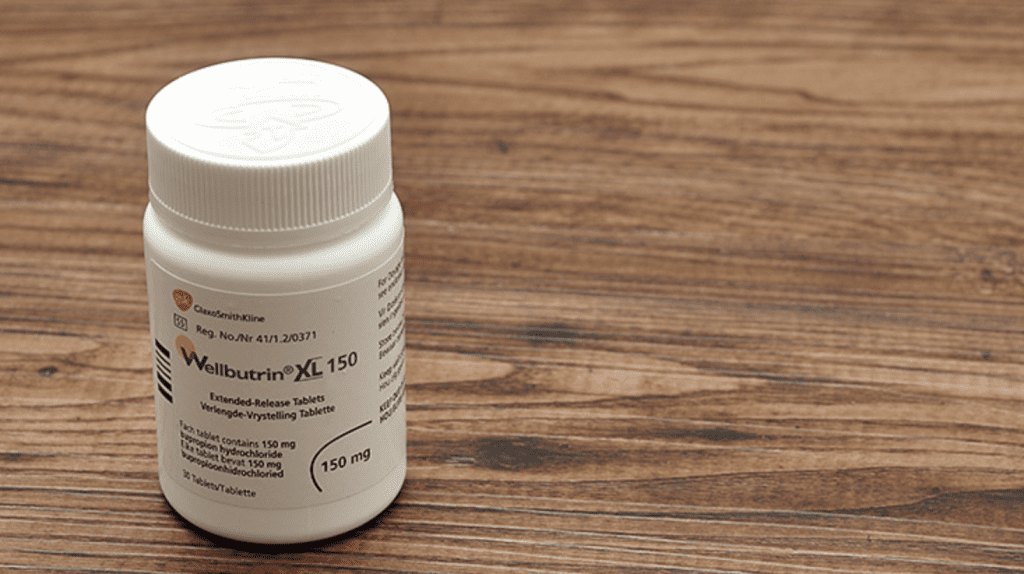
If you take Wellbutrin to manage depression or other mental health issues, you may wonder if it is safe to take nootropics.
Nootropics are supplements or drugs believed to enhance cognitive function, memory, creativity, and motivation.
While the FDA does not approve nootropics to treat any medical conditions, they are gaining popularity among people who want to improve their mental performance.
The answer to whether you can take nootropics with Wellbutrin is not straightforward. It depends on the specific nootropic you want to take and your health and medical history. Some nootropics may interact with Wellbutrin and cause adverse effects, while others may be safe to take together. It is important to consult with your healthcare provider before adding any nootropics to your treatment regimen to ensure that it is safe and appropriate.
Insights into Wellbutrin
If you are considering taking nootropics with Wellbutrin, it is important to understand how this medication works and its potential side effects. Wellbutrin is a brand name for bupropion, an antidepressant that works by increasing the levels of dopamine and norepinephrine in the brain. It is commonly used to treat major depressive disorder and seasonal affective disorder and to aid in smoking cessation.
One thing to keep in mind is that the FDA does not approve Wellbutrin for the treatment of ADHD or attention-related disorders. However, some doctors may prescribe it off-label for these conditions. If you are taking Wellbutrin for depression, it is important to be aware of the potential for increased anxiety, agitation, and restlessness. If you are experiencing any of these symptoms, it is important to speak with your doctor.
It is also important to take Wellbutrin as prescribed and not to miss any doses. If you do miss a dose, take it as soon as you remember. However, if it is close to the time of your next dose, skip the missed dose and continue with your regular dosing schedule. Do not double your dose to make up for a missed one.
In addition, it is important to be aware of the potential for interactions with other medications and supplements. Wellbutrin should not be taken with MAO inhibitors, and caution should be used when taking it with other medications that affect the central nervous system, such as benzodiazepines or opioids. It is important to speak with your doctor before taking any new medications or supplements while taking Wellbutrin.
Overall, Wellbutrin can be an effective medication for treating depression and other conditions. However, taking it as prescribed and being aware of its potential side effects and interactions with other medications is important. If you have any concerns or questions about taking Wellbutrin, speak with your doctor.
Potential Interactions
When taking Wellbutrin as a nootropic, it is important to be aware of potential interactions with other drugs, including prescription and over-the-counter medications. Certain drugs can interact with Wellbutrin, increasing the risk of side effects or reducing effectiveness. It is always recommended to consult with your healthcare provider before taking any new medications or supplements.
Alcohol should be avoided when taking Wellbutrin as it can increase the risk of seizures. Additionally, alcohol can worsen the side effects of Wellbutrin, such as dizziness, nausea, and headaches. It is important to follow the medication guide and avoid alcohol when taking Wellbutrin.
Wellbutrin can interact with other medications that are metabolized by the CYP2B6 and CYP2D6 enzymes. These enzymes are responsible for breaking down drugs in the liver. If these enzymes metabolize a medication, it can interact with Wellbutrin and increase the risk of side effects or reduce its effectiveness. It is important to inform your healthcare provider of all medications you are taking, including over-the-counter medications and supplements.
The dosage and active ingredient of the medication can also affect its interaction with Wellbutrin. Some medications may have a higher dose or a different active ingredient that can interact with Wellbutrin. It is important to follow the medication guide and inform your healthcare provider of any changes in your medications.
In summary, it is important to be aware of potential drug interactions when taking Wellbutrin as a nootropic. Alcohol should be avoided, and it is important to inform your healthcare provider of all medications you are taking. Following the medication guide and consulting with your healthcare provider can help reduce the risk of potential interactions and ensure the safe and effective use of Wellbutrin as a nootropic.
Side Effects to Consider
When taking nootropics with Wellbutrin, it’s important to be aware of potential side effects. While most nootropics are generally well-tolerated and have low incidence of side effects, combining them with Wellbutrin can increase the risk of certain side effects. Here are some side effects to consider:
- Seizures: Combining nootropics with Wellbutrin can increase the risk of seizures, especially in individuals with a history of seizures or those taking high doses of nootropics.
- High blood pressure: Some nootropics can increase blood pressure, which can be dangerous when combined with Wellbutrin, as it can also increase blood pressure.
- Insomnia: Nootropics can sometimes cause insomnia, which can exacerbate the insomnia that is already a known side effect of Wellbutrin.
- Fast heart rate: Certain nootropics can increase heart rate, which can be problematic when combined with Wellbutrin, as it can also increase heart rate.
- Addiction: Some nootropics have addictive potential, which can be dangerous when combined with Wellbutrin, as it is also a drug with addictive potential.
- Headache: Both nootropics and Wellbutrin can cause headaches, so combining the two may increase the risk of experiencing headaches.
- Nausea: Nausea is a common side effect of both nootropics and Wellbutrin, so combining the two may increase the risk of experiencing nausea.
- Sweating: Sweating is a known side effect of Wellbutrin, and some nootropics can also cause sweating, so combining the two may increase the risk of experiencing excessive sweating.
- Hallucinations: While rare, some nootropics can cause hallucinations, which can be dangerous when combined with Wellbutrin, as it can also cause hallucinations.
- Dizziness: Both nootropics and Wellbutrin can cause dizziness, so combining the two may increase the risk of experiencing dizziness.
- Dry mouth: Dry mouth is a common side effect of both nootropics and Wellbutrin, so combining the two may increase the risk of experiencing dry mouth.
- Sore throat: Sore throat is a known side effect of Wellbutrin, and some nootropics can also cause sore throat, so combining the two may increase the risk of experiencing sore throat.
- Constipation: Constipation is a known side effect of Wellbutrin, and some nootropics can also cause constipation, so combining the two may increase the risk of experiencing constipation.
- Rash: While rare, some nootropics can cause rashes, which can be dangerous when combined with Wellbutrin, as it can also cause rashes.
- Weight loss/gain: Some nootropics can cause weight loss or weight gain, which can be problematic when combined with Wellbutrin, as it can also cause weight loss or weight gain.
It’s important to note that not everyone will experience these side effects, and the severity of the side effects can vary from person to person. If you experience any of these side effects, it’s important to talk to your healthcare provider. They can help you determine if the side effects are related to the nootropics, Wellbutrin, or both, and can provide guidance on how to manage the side effects.
Impact on Cognitive Functions
If you are considering taking nootropics while on Wellbutrin, you may be curious about the impact it can have on your cognitive functions. Nootropics are known for their brain-boosting effects, but it’s important to understand how they can affect your cognitive functions before taking them.
Memory is one of the most important cognitive functions that nootropics can impact. Some nootropics, such as piracetam, have been shown to enhance memory in older adults. However, it’s important to note that not all nootropics have the same effect on memory.
Thinking is another cognitive function that nootropics can impact. Some nootropics, such as caffeine, can improve focus and concentration. However, other nootropics, such as amphetamines, can have negative effects on thinking and cognitive function.
Nootropics are used for a variety of purposes, including treating conditions such as narcolepsy, dementia, and ADHD. They can also be used to enhance mental performance and motivation, reduce stress, and improve cognitive function in older adults.
It’s important to note that nootropics are not a substitute for prescription stimulants such as Adderall or methylphenidate. While these drugs can improve brain performance, they can also have serious side effects and should only be taken under the guidance of a healthcare professional.
In conclusion, while nootropics can have a positive impact on cognitive functions such as memory and thinking, it’s important to understand their effects and potential risks before taking them. If you are considering taking nootropics while on Wellbutrin, it’s important to speak with your healthcare provider to ensure that it is safe and effective for you.
Other Considerations
When taking nootropics with Wellbutrin, there are a few other considerations you should keep in mind. Here are some important things to consider:
Sleep
Wellbutrin may cause sleep problems, such as insomnia or sleepiness. If you’re already having trouble sleeping, adding nootropics to the mix could make things worse. Consider taking nootropics earlier in the day to avoid interfering with your sleep.
Seasonal Affective Disorder
If you’re taking Wellbutrin for seasonal affective disorder (SAD), you may want to consider taking nootropics that have been shown to be effective for SAD. For example, green tea and panax ginseng have both been studied for their potential to improve mood and alleviate symptoms of SAD.
Tablets
If you’re taking Wellbutrin in tablet form, be sure to follow your doctor’s instructions for proper use. The dosage may need to be adjusted based on your individual needs and response to the medication.
Eating Disorders
If you have an eating disorder, it’s important to be cautious when taking nootropics. Some nootropics, such as linezolid, can interact with Wellbutrin and increase the risk of seizures. Talk to your doctor before taking any new supplements or medications.
Norepinephrine and Serotonin
Wellbutrin works by increasing the levels of norepinephrine and dopamine in the brain. Some nootropics, such as L-tyrosine, may also increase levels of these neurotransmitters. Be cautious when combining these supplements, as it may increase the risk of side effects.
Overall, talking to your doctor before taking any new supplements or medications is important, especially if you’re taking Wellbutrin. Be sure to inform your doctor of all the supplements and medications you’re taking and any medical conditions you have.

